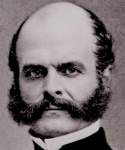Under its editor Wilbur Fiske Storey, the Chicago Times had long been hostile to Abraham Lincoln, the Republican Party, and government policy, calling the Emancipation Proclamation "monstrous usurpation" and protesting particularly vehemently the military arrest and banishment of Ohio Congressman Clement L. Vannandigham. On Burnside's action, twenty thousand Chicagoans protested in the streets that evening and President Lincoln later recommended rescinding the order. The Times reopened four days after its closing. (By John Osborne)
Source Citation
Geoffrey R. Stone, Perilous Times: Free Speech in Wartime: From the Sedition Act of 1798 to the War on Terrorism (New York: W. W. Norton & Company, 2004), 106-107.
Record Data
Date Certainty
Exact
Type
Lawmaking/Litigating




